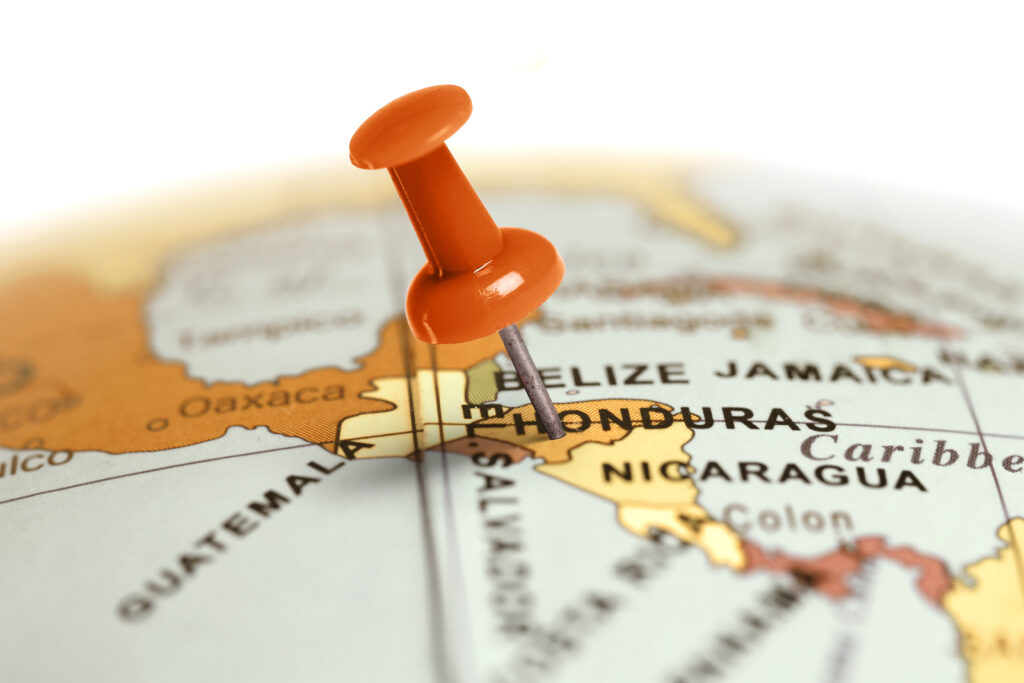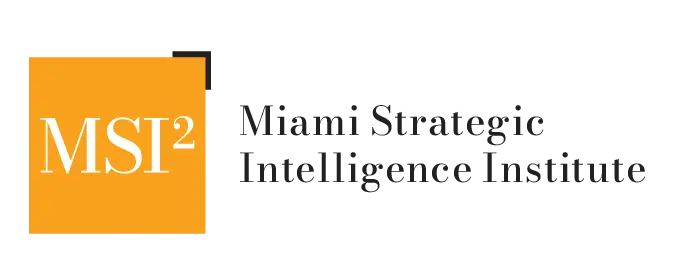09 Apr CELAC in Tegucigalpa: A Summit of Soundbites, Not Solutions
By,
Jesús Daniel Romero, Co-Founder and Senior Fellow, MSI2
On April 9, 2025, the IX CELAC Summit convened in Tegucigalpa, Honduras, with over a dozen Latin American heads of state—including Brazil’s Luiz Inácio Lula da Silva—gathering under the banner of regional unity (Government of Brazil, 2025).
Hosted by President Xiomara Castro during her pro tempore tenure, the event promised to tackle climate change, food security, and integration. Yet, beneath the polished speeches and photo-ops, a stark truth emerged: the Community of Latin American and Caribbean States (CELAC) remains a stage for grand promises that rarely leave the script. As leaders toasted to solidarity, the summit laid bare CELAC’s persistent flaws—structural weakness, political posturing, and a disconnect from the region’s grinding realities, all exacerbated by the looming shadow of U.S. President Donald Trump’s tariffs and sanctions.
A Toothless Bloc in a Time of Crisis
CELAC’s allure lies in its vision: a unified Latin America and Caribbean, free from U.S. and Canadian oversight, charting its own course (OAS, 2023). The Tegucigalpa Declaration, prepped by coordinators on April 7, aimed high think Brazil’s push for a women, peace, and security agenda or nods to the bloc’s food security goals (Government of Brazil, 2025). But ambition isn’t action. Unlike the OAS, with its (imperfect) mechanisms, or the EU, with binding policies, CELAC lacks teeth (OAS, 2023). Its resolutions are non-binding, its budget is a patchwork, and its secretariat is a pipe dream. The result? Summits like this one churn out declarations that gather dust while 30% of the region’s people scrape by in poverty and climate disasters batter unprepared nations (World Bank, 2024). Honduras itself, still reeling from hurricanes past, hosted a meeting that offered little beyond platitudes (UNDRR, 2023). If CELAC can’t deliver in a crisis, what’s the point?

Optics Over Substance
The summit’s staging in Tegucigalpa was a spectacle of misaligned priorities. Honduras deployed 5,000 police and 2,000 military personnel to secure the event, a flex of resources that dwarfed the daily struggles of its citizens (La Prensa, 2025). Over 100,000 public employees were relegated to “telework,” schools shuttered, and the capital ground to a halt all for a gathering that critics argue served more to polish Castro’s image than to address local woes. Gabriela Castellanos of Honduras’ National Anti-Corruption Council called it “an act of cynicism,” pointing out that the funds and manpower could have tackled poverty or crumbling infrastructure instead (CNA, 2025). The irony deepens with whispers of narco-ties: on the very day of Castro’s investiture, January 27, 2022, witnesses claim a large cocaine load flew from Venezuela to Honduras, landing that morning as the presidential pomp unfolded. Though unverified by official records, the allegation aligns with broader scandals implicating Castro, her husband Manuel “Mel” Zelaya, and their family in drug trade rumors from 2024 video leaks involving her brother-in-law Carlos Zelaya to past bribe claims by ex-cartel leader Devis Leonel Rivera Maradiaga (InSight Crime, 2024) casting a long shadow over her leadership and CELAC’s moral footing.
Trump’s Tariffs: A Wedge in CELAC’s Unity
Trump’s tariff threats, escalating in 2025, hit CELAC where it hurts: its economic and political cohesion. Many CELAC members—Brazil, Venezuela, and others—lean toward BRICS as a counterweight to U.S. dominance, dreaming of a dollar-alternative currency (Reuters, 2025a). But Trump’s “America First” trade war, with 100% tariffs threatened on BRICS nations and a baseline 10% on most Latin American goods (spiking to 15% for Venezuela and 18% for Nicaragua), has thrown a wrench into that vision (White House, 2025a). India’s rejection of a BRICS currency and Lula’s refusal to back Venezuela’s BRICS bid dismissing Maduro’s regime as a liability further fracture the bloc’s alignment (The Hindu, 2025). Here, Lula missed a historical moment: rather than doubling down on CELAC’s anti-U.S. rhetoric, he could have worked with Trump to negotiate tariff relief for Brazil, leveraging its economic clout to shield the region (Reuters, 2025b). Instead, his ideological tilt left CELAC’s membership facing a stark choice: defy Trump and risk economic retaliation or bend to U.S. pressure and undermine their anti-imperialist stance. Honduras, hosting the summit, felt the heat—its exports to the U.S., like coffee and textiles, face higher costs (USDA, 2025), while Castro’s alleged narco-ties give Trump leverage to tighten the screws. The summit’s calls for integration rang hollow as tariffs exposed CELAC’s inability to shield its members from external shocks or muster a unified response.
Sanctions, Symbolism, and Dysfunction: CELAC’s Crisis of Leadership in 2025
If tariffs weren’t enough, U.S. oil sanctions against Venezuela tightened in 2025 strike at CELAC’s core. Trump’s revocation of Chevron’s operating license in February and a 25% tariff on Venezuelan oil importers (effective April 2) have slashed Venezuela’s exports by 11.5% in a month (Reuters, 2025c; White House, 2025b). This chokes Petrocaribe, the oil lifeline for Caribbean CELAC members like Cuba and Nicaragua, who now face fuel crises that could tip their fragile economies over the edge (Reuters, 2025d).
As the energy crisis deepens, the region’s elites showcase their detachment. Although Cuba’s Miguel Díaz-Canel did not attend the summit, his government was represented by Foreign Minister Bruno Eduardo Rodríguez who likely arrived in the super-luxury Falcon 900ER jet, a $41 million Dassault aircraft gifted by Nicolás Maduro. Meanwhile, Maduro himself also skipped the event, but his foreign minister, Yván Gil, arrived in equal opulence aboard the regime’s Bombardier Global 6000 jet. Ironically, these aircraft symbols of excess and privilege were acquired from the very empire they so often denounce: the United States.
While ordinary Cubans endure rolling blackouts and scratch to survive amid a worsening crisis (en.ara.cat, 2025), their leaders’ use of luxury jets designed for billionaires underscores CELAC’s growing credibility gap. These scenes undermine the bloc’s claim to moral authority and regional solidarity.
In sharp contrast, Mexico’s President Claudia Sheinbaum did attend in person—an early signal of her foreign policy direction. Her participation, however, came with a caveat: she stated it was “at the insistence of President Xiomara Castro,” the summit host whose government faces longstanding allegations of ties to cocaine trafficking. The irony was not lost on observers: Sheinbaum, fresh from the political transition in Mexico, stood visibly alone among major leftist heads of state while Cuba and Venezuela, long seen as CELAC’s ideological pillars, opted for low-profile representation. Their absence spoke volumes.
Larger players like Brazil and Colombia, wary of U.S. retaliation, hesitate to defy the sanctions, despite Venezuela’s symbolic weight in CELAC’s anti-U.S. ethos. Lula’s snub of Maduro’s BRICS bid already signaled distance; sanctions widen that gap, leaving Venezuela isolated and CELAC impotent to protect it (The Hindu, 2025).
The summit’s woes deepened with Colombia’s Gustavo Petro, who assumed CELAC’s pro tempore presidency in March 2025 amid the wreckage of his “Total Peace” policy. Launched in 2022 to end Colombia’s decades-long conflict, the initiative faltered as negotiations with groups like the ELN stalled and violence surged in regions like Cauca and Catatumbo (ACLED, 2024). In a paradox emblematic of the policy’s contradictions, Petro authorized military bombings of Cartel del Golfo sites in early 2025 even as he defended Tren de Aragua gang members as “youths needing love” following DHS Secretary Kristi Noem’s March 27 Bogotá visit (CNN Español, 2025).
With Total Peace a domestic bust, Petro’s CELAC leadership risks being a hollow echo of his grand promises. Instead of forging a united regional response, the Tegucigalpa summit exposed CELAC’s fracture lines between ideology and reality, rhetoric and governance.
Conclusion: A Bloc Adrift in a Narco-Tinged Mire
The Tegucigalpa summit wasn’t a failure of intent, but of execution, and Trump’s tariffs, sanctions, and Petro’s faltering leadership widened the cracks. CELAC’s dream of regional sovereignty clashes with its practical impotence, leaving it a talking shop rather than a power broker. From the alleged cocaine flight on Castro’s investiture day to Venezuela’s oil woes and Petro’s shameful pivot from peace to platitudes, the bloc’s leadership stumbles under scrutiny, its members splintered by U.S. pressure and internal rot (InSight Crime, 2024; Reuters, 2025c; CNN Español, 2025). After 14 years, CELAC still hasn’t delivered anything more than “dialogue,” its grand promises unfulfilled by a lack of action or authority. The “narco-tinged mire” isn’t just rhetoric—Haiti’s gang rule, Mexico’s cartels, and Honduras’ trafficking scandals erode governance across the region, yet CELAC sidesteps these thorns for safer topics like climate funds or Cuba’s blockade. Without binding mechanisms—a secretariat, a trade pact, or pooled resources—it remains adrift, trapped between defiance and irrelevance. Lula’s missed chance to parley with Trump on tariffs epitomizes the strategic drift CELAC clings to while lacking the clout to back it up (Reuters, 2025b). The 2025 Honduras presidency’s 2,000 scholarships and ministerial meetings are feel-good gestures, not power moves. Until CELAC trades photo-ops for pragmatism, Latin America’s challenges will outpace its leaders’ promises.
References
ACLED. (2024). ‘Total Peace’ paradox in Colombia: Petro’s policy reduced violence, but armed groups grew stronger. https://acleddata.com/2024/11/28/total-peace-paradox-colombia
CNA (Consejo Nacional Anticorrupción). (2025, April 8). Informe sobre el impacto del IX Cumbre CELAC en Honduras Report on the impact of the IX CELAC Summit in Honduras. https://www.cna.hn/informes/2025/celac-summit
CNN Español. (2025, April 5). Petro rechaza declaraciones de la secretaria de Seguridad de EE.UU. Petro rejects statements by U.S. Homeland Security Secretary. https://cnnespanol.cnn.com/2025/04/05/petro-rechaza-declaraciones-noem-tren-aragua
Government of Brazil. (2025, April 7). President Lula attends CELAC Summit in Honduras, strengthening regional integration. https://www.gov.br/planalto/en/latest-news/2025/04/president-lula-attends-celac-summit-in-honduras-strengthening-regional-integration
InSight Crime. (2024, August 15). Honduras’ Zelaya family under scrutiny as narco-allegations resurface. https://insightcrime.org/news/honduras-zelaya-family-narco-allegations-2024/
La Prensa. (2025, April 9). Tegucigalpa paralizada por Cumbre CELAC: 5,000 policías y 2,000 militares desplegados Tegucigalpa paralyzed by CELAC Summit: 5,000 police and 2,000 military deployed. https://www.laprensa.hn/nacionales/cumbre-celac-2025-seguridad
OAS (Organization of American States). (2023). Comparative analysis of regional organizations in the Americas. https://www.oas.org/en/publications/regional-organizations-2023
Reuters. (2025a, January 10). BRICS currency talks falter as India opts out. https://www.reuters.com/business/brics-currency-2025
Reuters. (2025b, March 15). Trump’s tariff threats loom over Latin America. https://www.reuters.com/world/americas/trump-tariffs-2025
Reuters. (2025c, April 3). Venezuela oil exports drop 11.5% amid new U.S. sanctions. https://www.reuters.com/business/energy/venezuela-oil-sanctions-2025
Reuters. (2025d, April 5). Petrocaribe nations reel as Venezuelan oil dries up. https://www.reuters.com/world/americas/petrocaribe-2025
The Hindu. (2025, February 20). Jaishankar: No BRICS currency in near future. https://www.thehindu.com/news/international/brics-currency-jaishankar-2025
UNDRR (United Nations Office for Disaster Risk Reduction). (2023). Honduras: Disaster risk profile. https://www.undrr.org/publication/honduras-risk-profile-2023
USDA (United States Department of Agriculture). (2025). Honduras export outlook 2025: Coffee and textiles under pressure. https://www.usda.gov/reports/honduras-exports-2025
White House. (2025a, March 24). Executive order on tariffs for strategic competitors. https://www.whitehouse.gov/briefing-room/executive-orders/2025/03/24/tariffs
White House. (2025b, February 27). Executive order revoking oil licenses in Venezuela. https://www.whitehouse.gov/briefing-room/executive-orders/2025/02/27/venezuela-sanctions
World Bank. (2024). Latin America and Caribbean poverty overview 2024. https://www.worldbank.org/en/region/lac/poverty-2024
